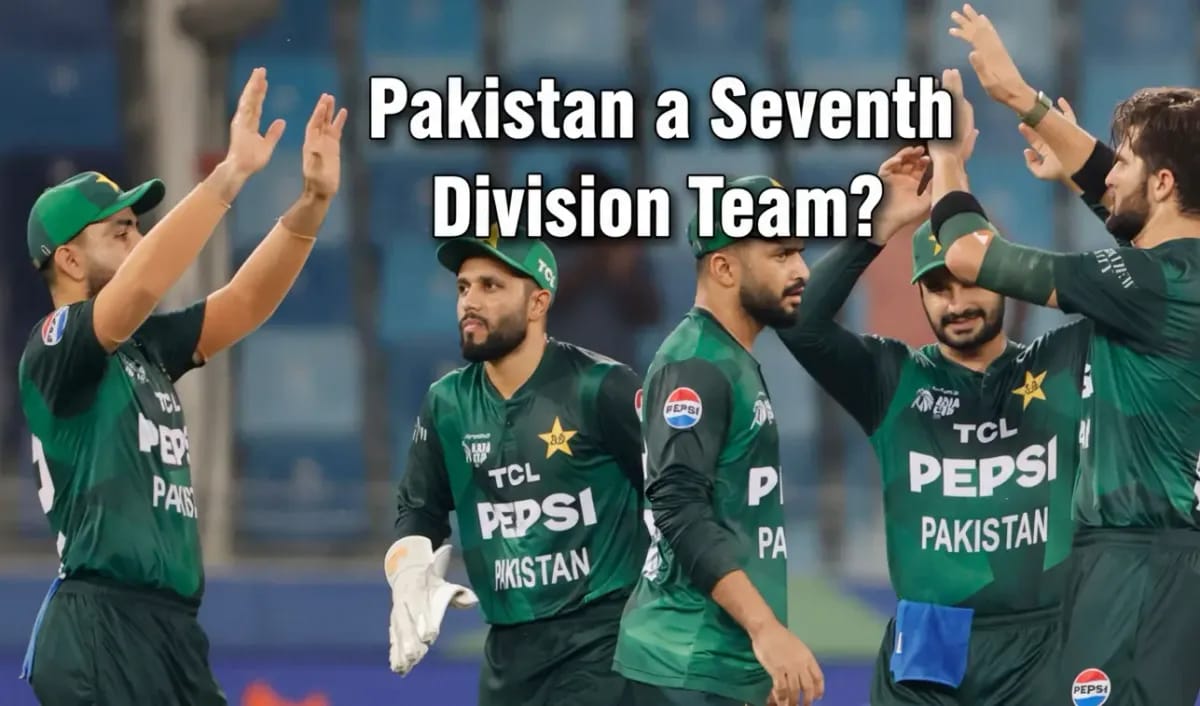Krishnamachari Srikkanth slams Pakistan before Super Four: “Seventh-division team,” no threat to India

Kris Srikkanth’s Stinging Take On Pakistan Before Super Four Clash: What He Said, Why It Matters
Former India opener Krishnamachari Srikkanth has sparked debate ahead of the India–Pakistan Super Four match with blunt criticism of Pakistan’s form and standards. Speaking on his show, he said Pakistan shouldn’t be playing the top teams right now and even likened the current side to a “seventh-division team” from Chennai club cricket. The comments arrive after India’s dominant seven-wicket win in the group game, where a 128-run chase was wrapped up inside 16 overs, and as Pakistan scrape into the next stage after an anxious finish against UAE.
What Srikkanth Said
Srikkanth did not hold back. He argued that Pakistan look far from the level needed to challenge elite sides at present. He suggested they “shouldn’t be playing with the main teams” and should instead be grouped with Associates until they rebuild, adding that the India–Pakistan rivalry can’t draw crowds if one side is not competitive. He also took aim at Pakistan’s set-up under head coach Mike Hesson, saying the team won’t make progress on the current path.
“Pakistan shouldn’t be playing with the main teams. Have them among the Associate nations.”
“This Pakistan team will give India no scare. This is a seventh-division team in a Chennai league.”
“You’ll go nowhere with Mike Hesson as your coach.”
Why These Remarks Landed Now
The recent result set the tone. India controlled the group match from ball one, bowled with discipline, and finished the chase with plenty to spare. Pakistan’s batting looked unsettled against India’s pace and spin mix, and their reliance on brief counterpunches wasn’t enough. Off the field, the side has also dealt with the handshake controversy fallout, a delayed start before UAE, cancelled press interactions, and visible pressure on leadership and selection. In that context, Srikkanth’s critique tapped into a wider narrative: Pakistan’s standards have slipped from their best, and India currently hold most of the advantages.
Pakistan’s Route To Super Four
Pakistan needed a win over UAE to advance and got there amid tension. The total was modest and the defence scrappy but successful. It showed fight, yet it also underlined issues in batting rhythm, middle-order stability, and clarity in roles. Selection questions linger — whether to back experience or add X-factor at the cost of balance — while the top order remains inconsistent against quality new-ball spells.
India’s Form And Focus
India, meanwhile, have handled different conditions and combinations well. The top order has started fast, the middle has adapted to surface changes, and the bowling has toggled between heavy spin and precision pace. Leadership has kept the talk on cricket, even as off-field noise grew. The gulf on the day in the group match was wide: India’s phases were coherent, Pakistan’s were fragmented.
The Coaching Question
Srikkanth’s swipe at Mike Hesson goes beyond one match. It questions strategic fit and messaging inside the dressing room. Hesson’s track record in international and franchise cricket is strong, but every tenure is about the right tools and timing. Pakistan’s current challenges — a shifting XI, strained confidence, and reactive tactics — aren’t solved by reputation alone. The coming games will test whether clarity improves: batting orders that hold, bowling plans that persist under pressure, and fielding that supports the plan.
What This Means For The Rivalry
Rivalries thrive on parity. When one side is clearly stronger, the edge dulls. Srikkanth’s claim that India–Pakistan “won’t attract crowds” without competitiveness is provocative; the fixture’s pull is unique. But the cricket itself must carry weight. Pakistan don’t need to be perfect; they need to be disciplined, brave, and clear. One strong, structured performance can change a week’s narrative.
What To Watch In Dubai
Pakistan’s top-order method against swing and back-of-a-length pace.
India’s spin phase: do Pakistan pre-empt with proactive strike rotation and matchups.
Fielding intensity: saving 10–15 runs can keep Pakistan in play deep into the chase or defence.
Leadership calm: fewer distractions, tighter messaging, smarter reviews and match-ups.
Bottom Line
Srikkanth’s words cut because they reflect form lines, not history. Right now, India look assured; Pakistan look unsure. That can change only on the field. If Pakistan find shape and belief, the contest breathes again. If not, Srikkanth’s harsh assessment will feel less like provocation and more like a reading of the room.